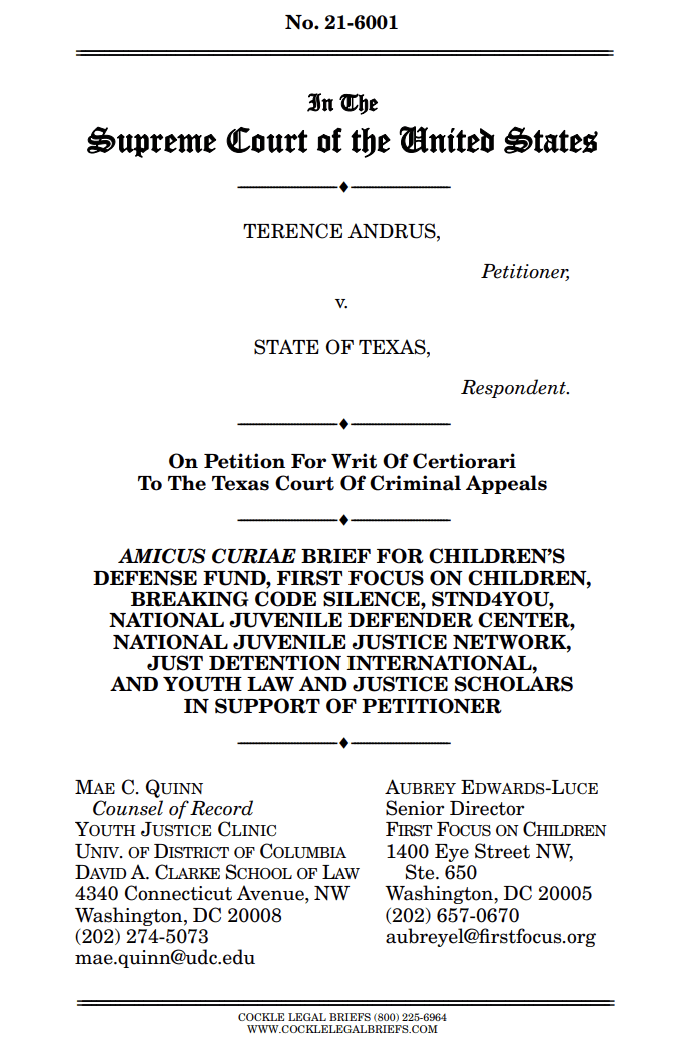
Summary of Argument
After finding that youthful offender Terence Andrus received severely inadequate legal representation during his capital sentencing hearing, this Court remanded his case to the Texas Court of Criminal Appeals (CCA) to apply the second prong of Strickland v. Washington, 445 U.S. 668 (1984). Andrus v. Texas, 140 S. Ct. 1875 (2020).
The CCA was directed to carefully review all mitigating evidence advanced by habeas counsel, “a tidal wave” of new proof relating to the abuse, neglect, and traumas Terence suffered as a child. Id. at 1887. This included living in a violent and drug-infested environment tainted by child sex abuse, long periods in solitary confinement as a teen, and medical and other maltreatment while at the Texas Youth Commission (TYC) – an agency placed into receivership because of widespread abuse visited upon its child residents.
The CCA was required to meaningfully assess whether a “reasonable probability” exists that one juror might have “struck a different balance regarding Andrus’ moral culpability” if such mitigating information had been presented at his sentencing hearing. See Andrus v. Texas, 140 S. Ct. at 1887 (internal quotation and citation omitted).
The CCA did not do this.
Instead, after criticizing this Court’s analysis and derogating its authority, the CCA side-stepped nearly all the persuasive proof presented by habeas counsel, mischaracterized mitigation evidence it did discuss, and ignored the impact and importance of expert testimony about youth trauma and counter-indicated youth justice practices.
In doing so, the CCA also abandoned decades of precedent from this Court regarding the juvenile justice system as a place of rehabilitation rather than punishment, In re Gault, 387 U.S. 1 (1967), adolescents as less morally culpable than adults, Miller v Alabama, 567 U.S. 460 (2012), and youth crime as often resulting from broken homes and systems. See Eddings v. Oklahoma, 455 U.S. 104, 115, n.11 (1982).
Moreover, the CCA took on the role of a second prosecutor, doubling down on its commitment to Terence’s execution based on a tragic criminal episode that occurred when he was high on hallucinogenic drugs. All we can know from the CCA’s “analysis” is that it was unmoved by the vast amount of mitigating evidence – not whether at least one juror would have been.
For all these reasons, this Court should grant Petitioner’s request for a fair capital sentencing hearing where he can be represented by competent counsel who understands the importance of mitigation investigation, expert testimony, and presentation of evidence relating to childhood traumas.